Vocabulary Building Normal Science Worksheets for Ages 4-7
11 filtered results
-
From - To
Introduce young learners to the fascinating world of science with our Vocabulary Building Normal Science Worksheets designed for ages 4-7. These engaging worksheets help children expand their scientific vocabulary while mastering fundamental concepts in an interactive and enjoyable way. Each worksheet is crafted to spark curiosity, encourage critical thinking, and develop essential language skills that lay the foundation for future scientific exploration. Featuring colorful illustrations and fun activities, our worksheets make learning science an exciting adventure, whether at home or in the classroom. Perfect for young children, these resources support their natural wonder and eagerness to learn.
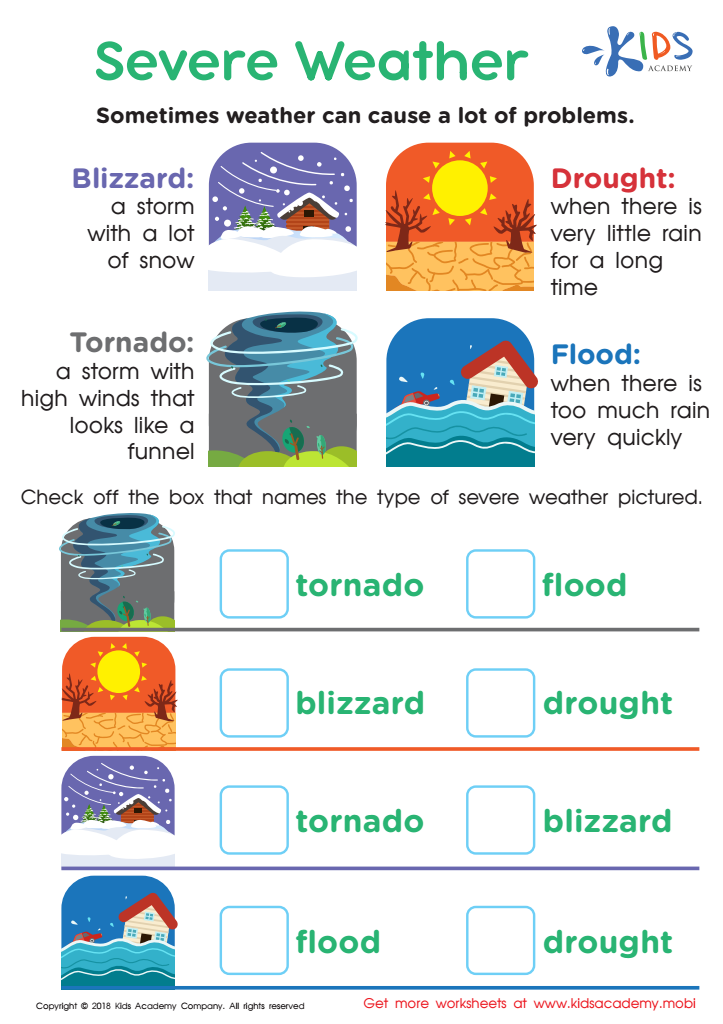

Severe Weather Worksheet
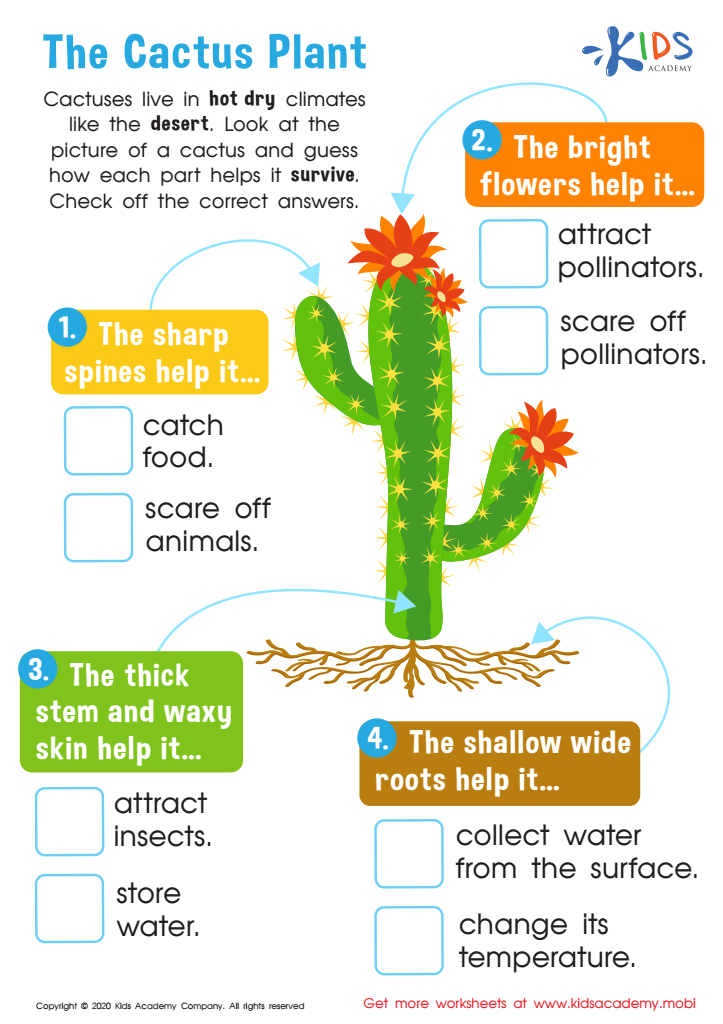

The Cactus Plant Worksheet
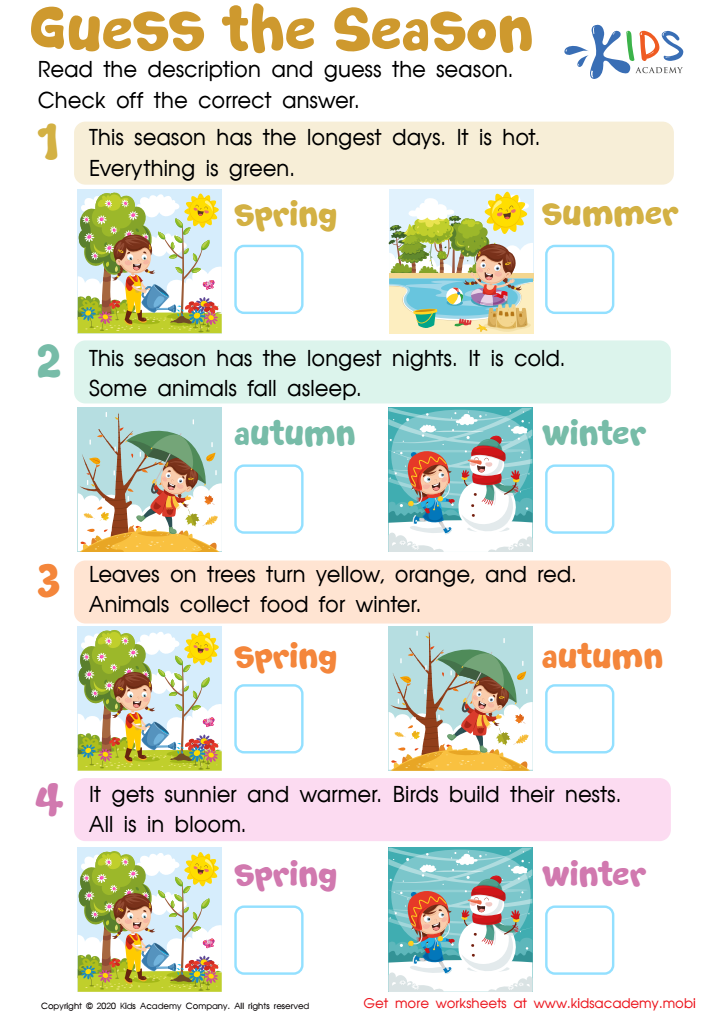

Guess the Season Worksheet
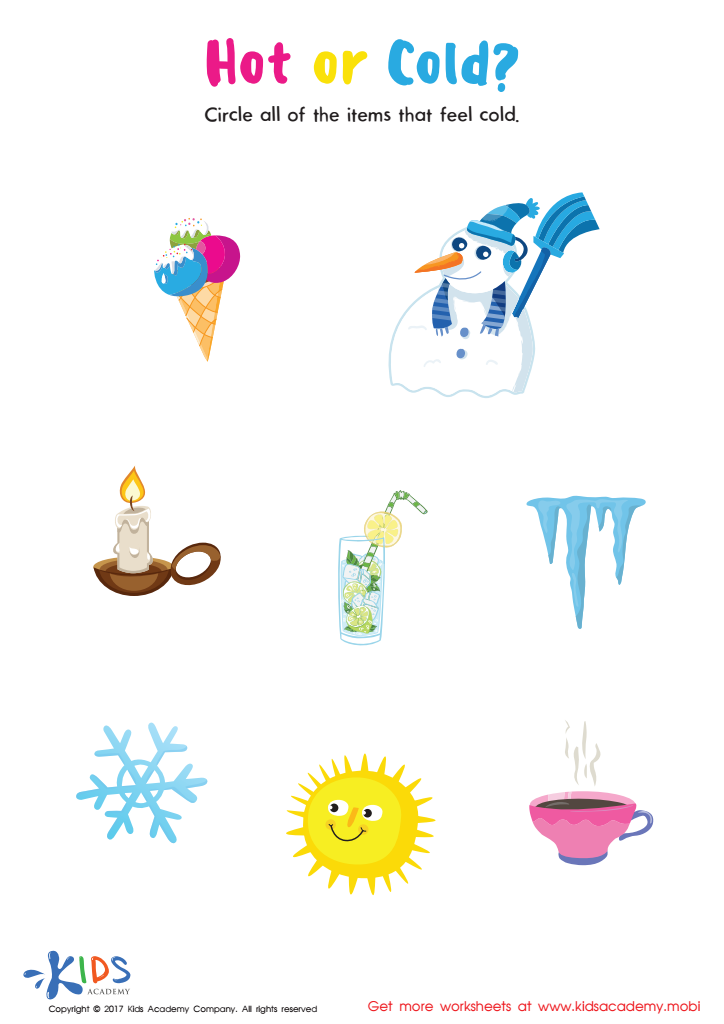

Hot or Cold Printable
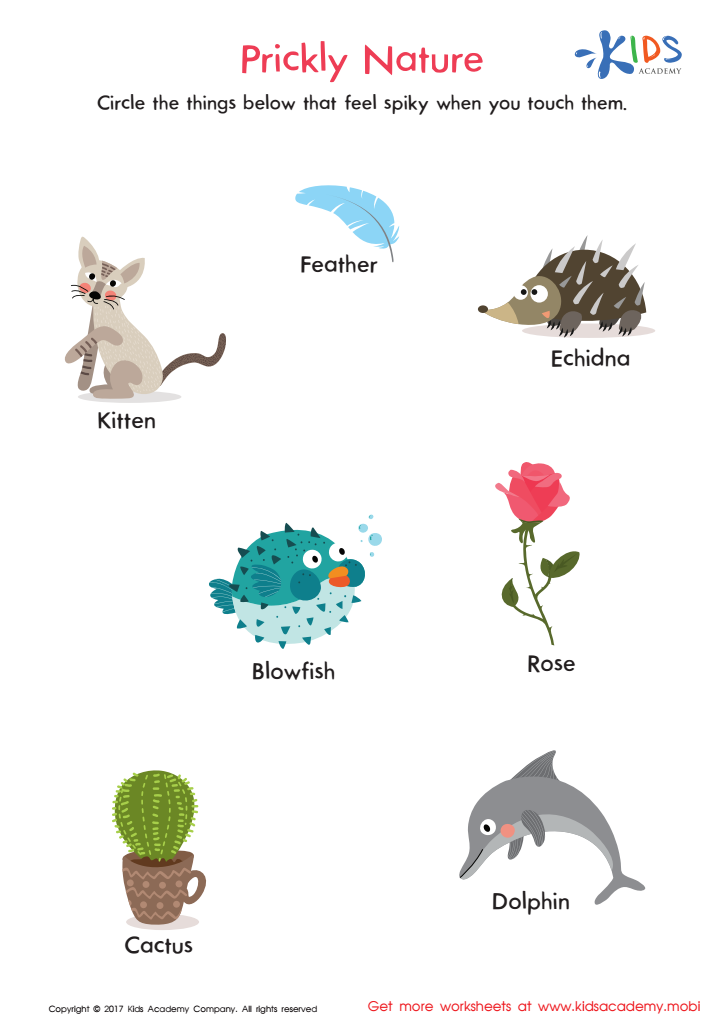

Prickly Nature Worksheet
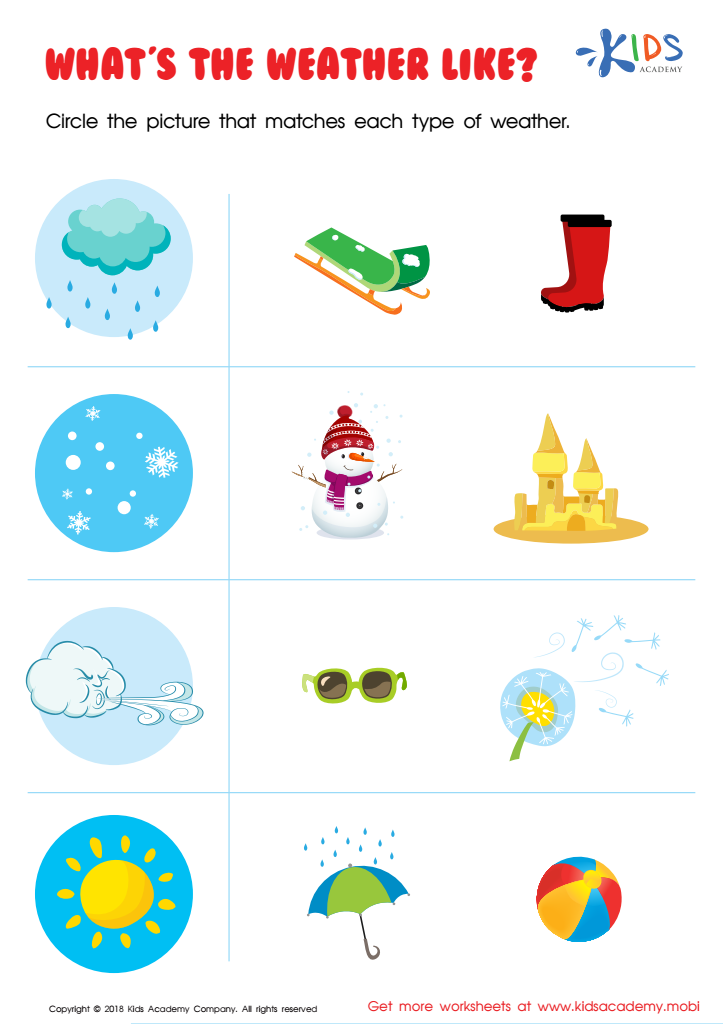

What's the Weather Like? Worksheet
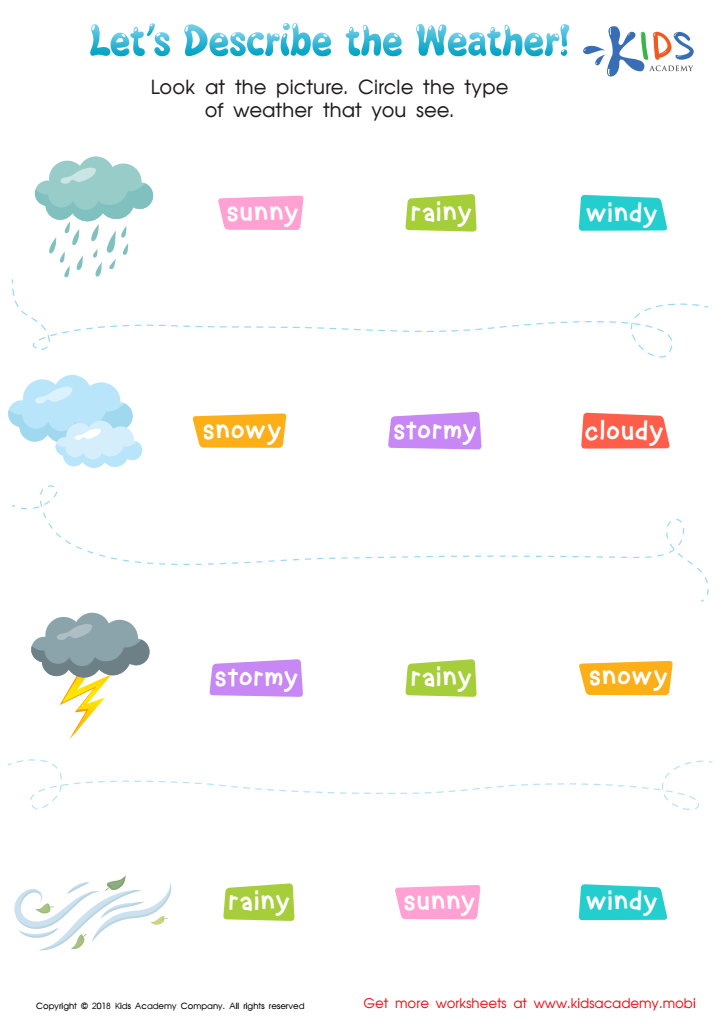

Let's Describe the Weather! Worksheet
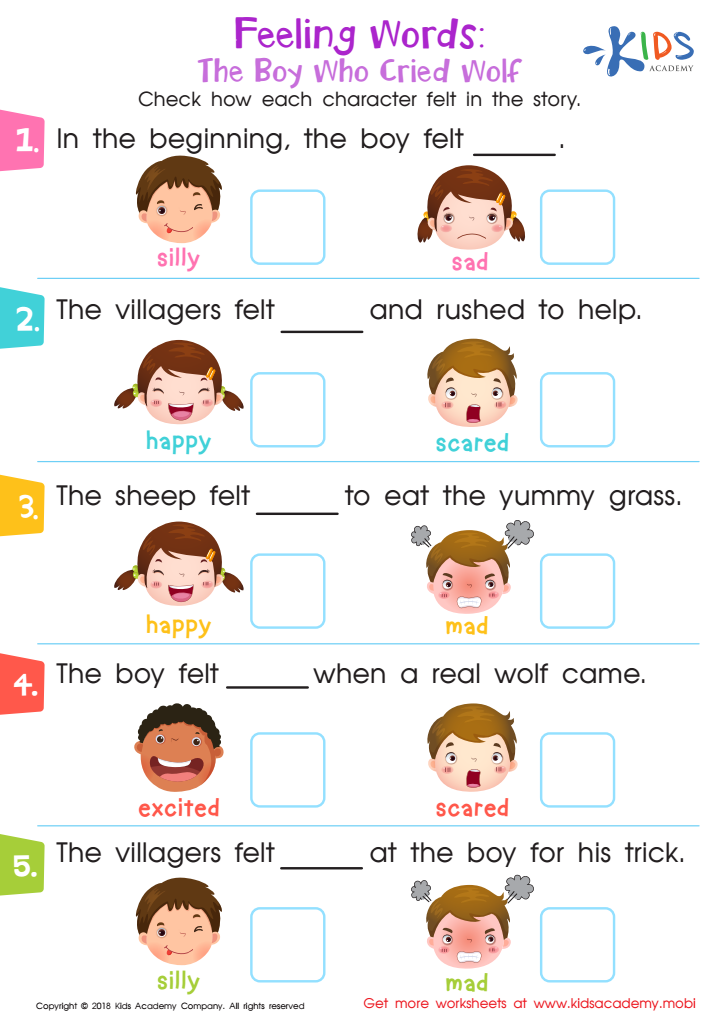

Feeling Words: The Boy Who Cried Wolf Worksheet
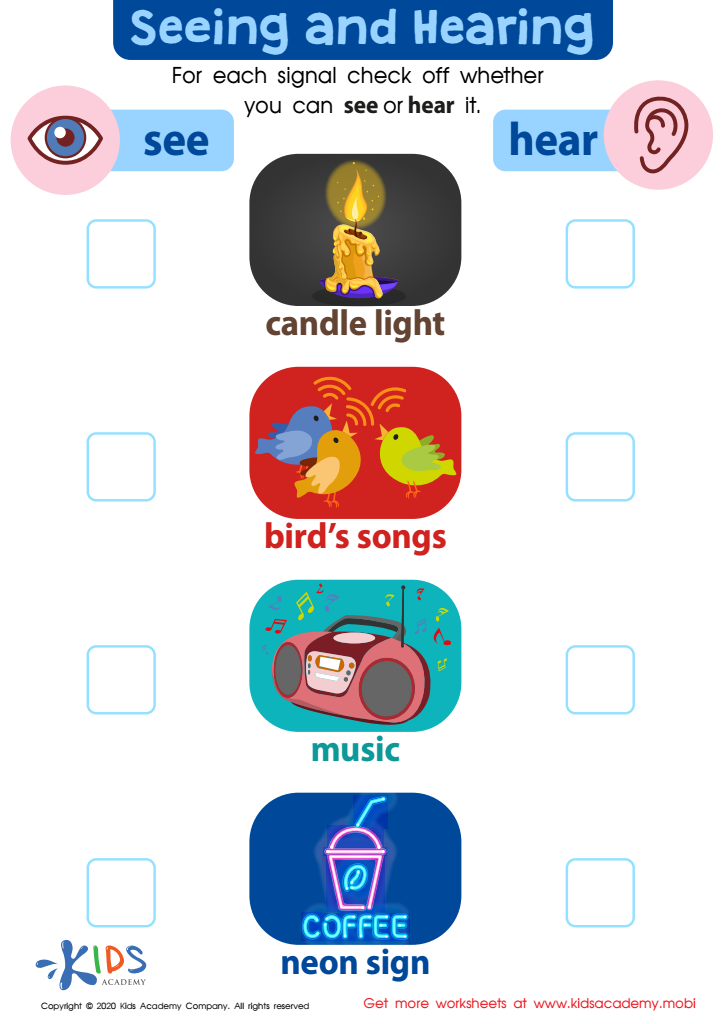

Seeing and Hearing Worksheet
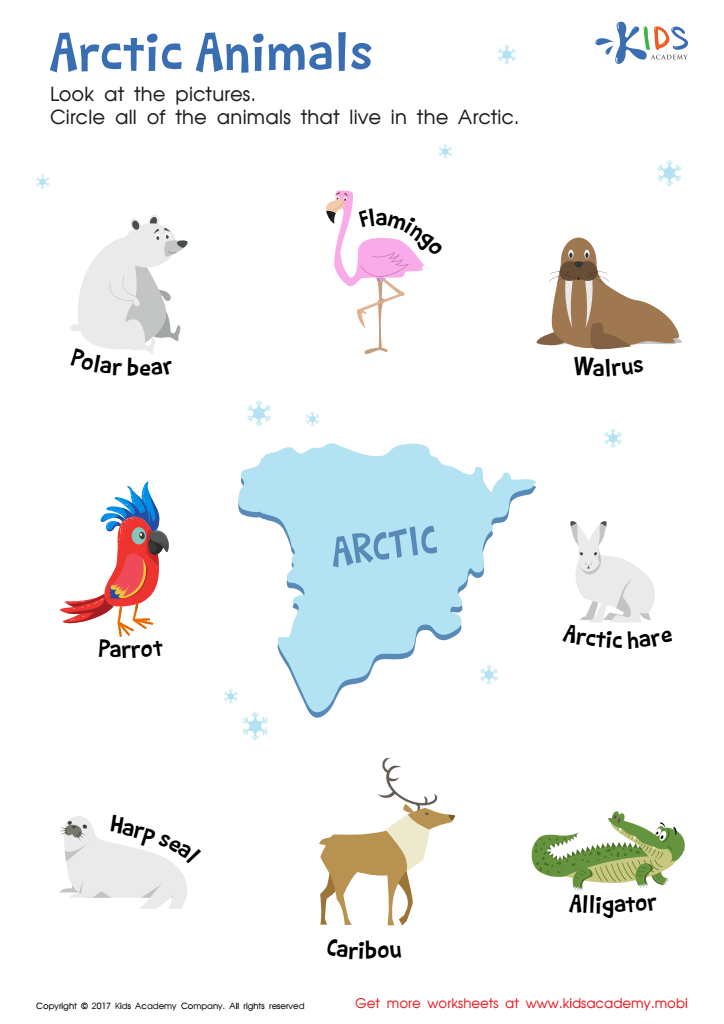

Arctic Animals Worksheet
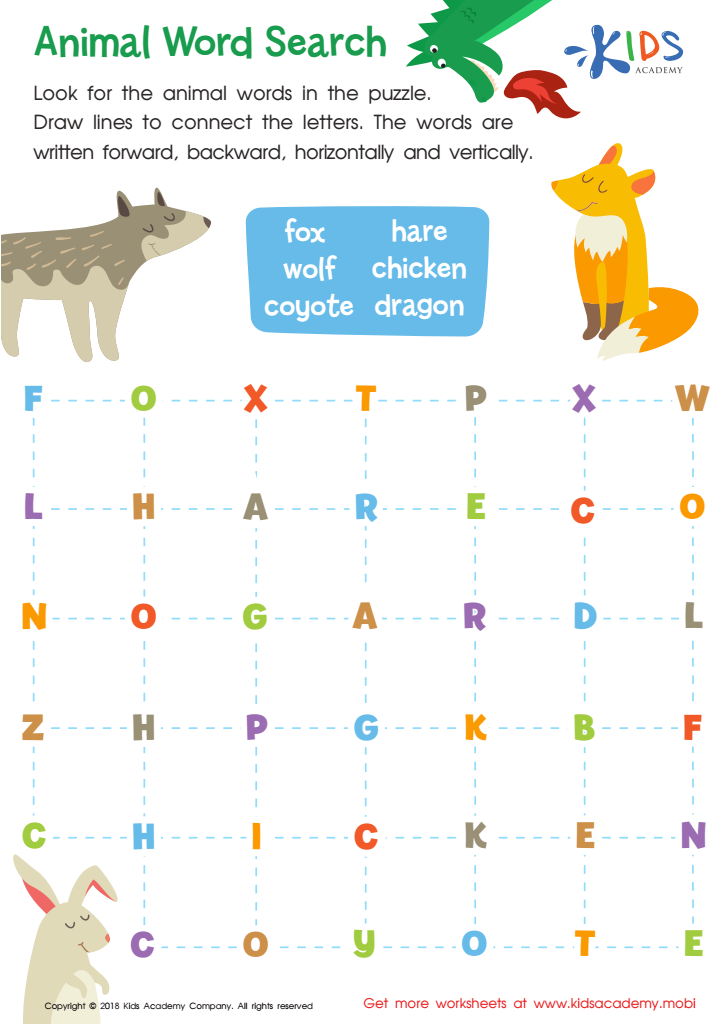

Animal Word Search Worksheet
Parents and teachers play pivotal roles in fostering early childhood development, and one critical area where their influence can shine is vocabulary building. For children aged 4-7, vocabulary development is not just about learning new words; it's a fundamental aspect of cognitive growth, social interactions, and academic success.
On a cognitive level, a robust vocabulary enhances a child's ability to classify and process information more efficiently. Understanding words for colors, shapes, numbers, and scientific concepts enables children to grasp more complex ideas and think critically. For example, when children learn words like "temperature," "magnet," or "capacity" through Normal Science activities, they begin to develop an understanding of the world around them in more nuanced ways.
Socially, a well-developed vocabulary empowers children to express themselves more clearly and build better relationships. They can articulate needs, describe experiences, and ask questions, fostering a more interactive and engaging learning environment.
Academically, early vocabulary acquisition is linked to better reading comprehension and overall school performance. Children with a strong vocabulary are better prepared for the challenges of decoding texts and understanding new information.
Therefore, by prioritizing vocabulary building in the context of Normal Science activities, parents and teachers can enrich children's lives, making them more adept learners and confident individuals. This early investment lays a foundation for lifelong learning and curiosity.
 Assign to My Students
Assign to My Students




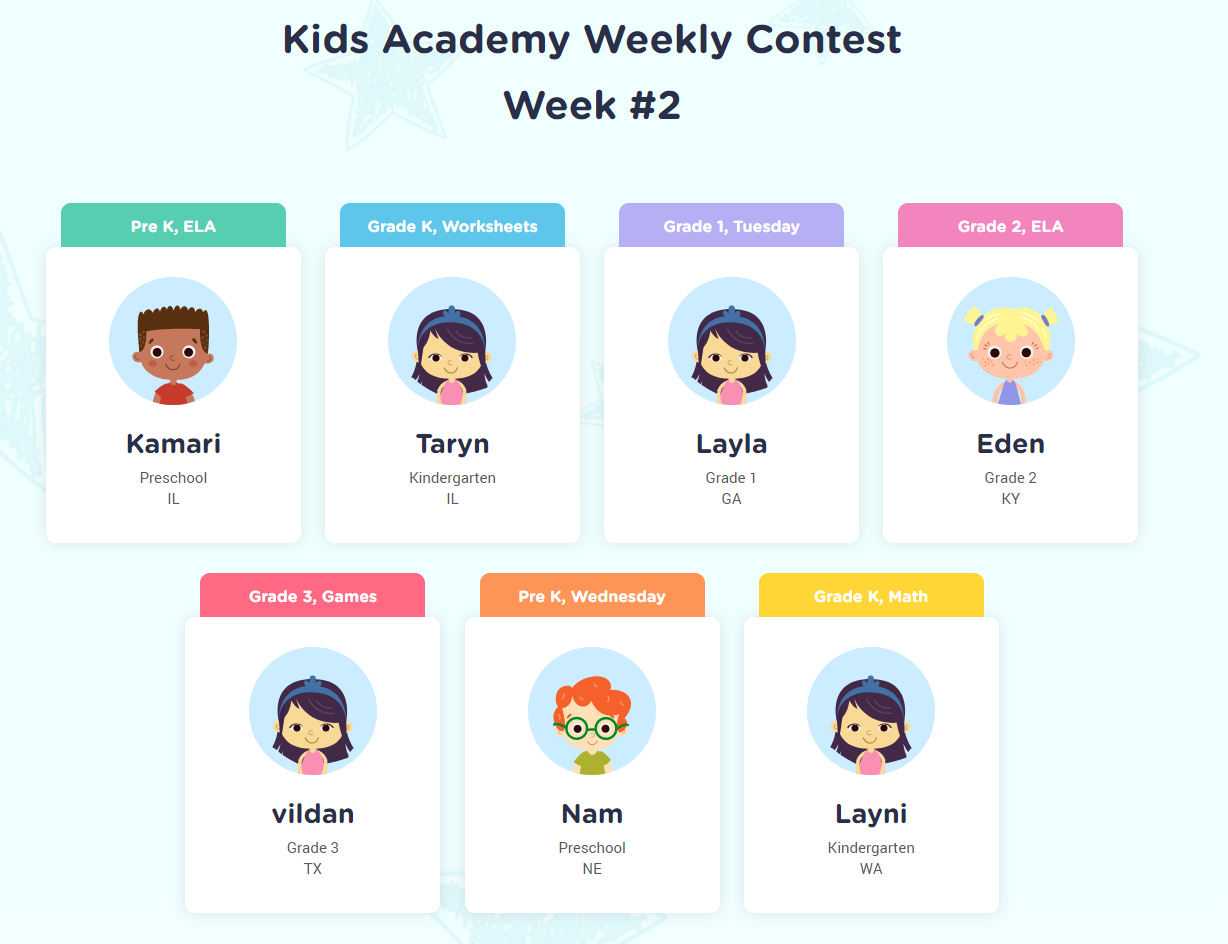
.jpg)









